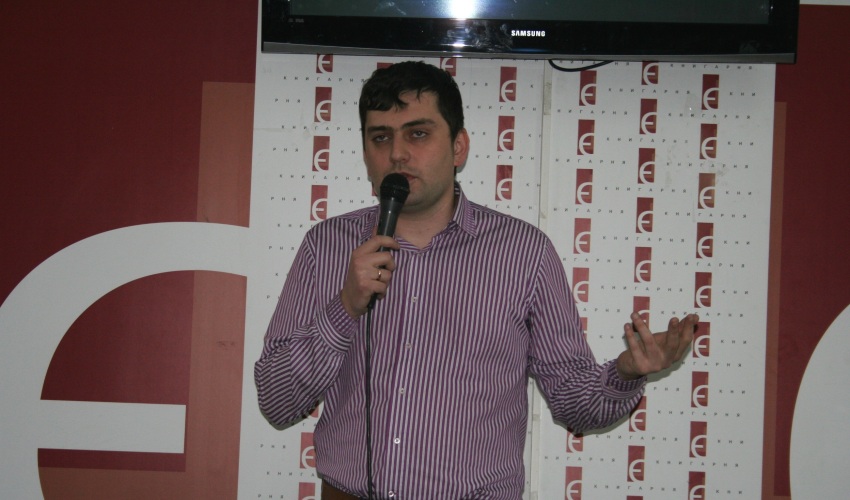The «Internet of Things» Bachelor’s program has been operating in Lviv Polytechnic for more than six months. Zenoviy Veres, its initiator, assistant of the Department of Computerized Automatic Systems of the Institute of Computer Technologies, Automation and Metrology, SoftServe architect, tells us about the first experience of introducing this new program.
For the demand of companies
The field of IT, which successful in terms of payment, proves that you can have a good remuneration for going intellectual work, since the average salary of an IT expert is $1736. It is curious that half of the 15,000 people, who work in IT companies in Lviv, do not have formal special education. They learn their professional skills in the workplace. In 2011, Lviv ІТ companies created a cluster to develop IT ecosystem of the city. The objective of this cluster is to unite companies, universities and local authorities to realize successful projects. In order to do this, first of all, we have to develop human resources, because the more people are engaged in IT industry, the more profit the company will have. Thus two years ago, the Department of Computerized Automatic Systems suggested that IT cluster create a new educational program in Lviv Polytechnic, so that its graduates could work without retraining and were able to compete at the world job market. At that time, IT companies initiated a «Computer Sciences» Bachelor’s program in the Ukrainian Catholic University. In February 2016, we started working on developing «Internet of Things» program in Polytechnic.
Titles remained, programs changed
At first, we had overcome lots of bureaucracy. We were supported by Lilia Hrynevych, Minister for Education. We managed to launch the program just a couple of days before the university admissions process began. Due to the fact that we organized a successful marketing campaign, explained the benefits of the new program, the competition was 41 candidates for one place. We admitted 55 people, 18 of them have their tuition fees paid by the state. Five students were offered scholarships from the IT cluster and one of the companies. However, two students rejected them. After the first exam session it turned out that four students failed…
What are the characteristic features of the «Internet of Things» program? First of all, we engaged experts to create it. Next step was to change the programs themselves without changing their titles (usually it’s vice versa). What new things were offered to students? We offered project oriented learning, connection with practical work and so called «soft» skills. Thus our students prepare not laboratory work or course papers but IT team projects. They learn to prepare and make presentations, focus the attention of the audience, work in an team, how to behave when a conflict arises.
In class, we offer students things they will need in a workplace. For example, the course of IT law is taught by a practicing expert. We teach the latest programming, not from the 1960s. In general, when we choose disciplines, we take into account how students will benefit from studying them, and what competence these disciplines will develop. Since we do not raise biorobots, we added necessary core subjects such as Philosophy, Psychology and History, which is perceived differently by 12-year-olds and 20-year-olds. This program is based on the market demand. It means we combined studying Mathematics and Physics with the things companies need. The basis of our program lies in foreign experience, because you don’t need to reinvent the wheel.
We focus a lot of attention on entrepreneurship culture. When at the end of the semester, students submitted their first projects, each of them had to answer a standard question, «Why is your projects better than your colleague’s? Why are the things you offer better than those already existing on the market?». We will do this with every project. Other IT companies are constantly joining our program. We are open to co-operation. Since a lecturer cannot pay a lot of attention to every student, our students were divided into small teams that work with mentors. But they only show the right direction, consult and help students. The team does everything else on their own. We also changed the approach towards internship. Our students will not focus on internship diaries, they will work on certain projects.
Learning is interaction
We would like to train an engineer, a person that is able to create, solve complicated problems, develop smart devices, introduce them into the network and establish a connection between them. For example, when there is fire on the premises, certain appliances will help us to find out whether there are people in there, whether we need to turn off the lights, cut off gas, how to open windows automatically.
Of course, the concepts used for learning 10 years ago are now outdated. We don’t know what will change in the next four years. That is why our objective is to teach the student how to learn. After their first year of studying, our students will have a lot of skills, and not only how to take the exam on paper. People that came to study here have to learn, work with the IOT, program, test and develop smart devices.
We managed to change the ideology of education – get rid of learning for the sake of learning. I am willing to share our program with other higher educational institutions. Everyone can become involved in changes: not only lecturers, but also students, who have to come to the departments and demand reviewing programs, changes in the way of teaching, co-operation with companies. Learning is the interaction of «university – student – employer».
